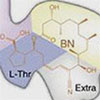A latest systematic review and meta-analysis conducted by scientists from institutions across China and the United States has uncovered promising insights into how vitamin D supplementation can significantly impact cardiometabolic health. The study, which was published in Engineering, has implications for tailored therapeutic strategies targeting cardiovascular diseases and related risks.
The comprehensive review analyzed 99 randomized controlled trials (RCTs) involving a total of 17 656 participants. The analysis revealed that vitamin D supplementation, with a median dose of 3320 International Units (IU) per day, was associated with favorable effects on various cardiometabolic risk factors, including reductions in systolic and diastolic blood pressure, total cholesterol, fasting blood glucose, hemoglobin A1C, and fasting blood insulin.
Significantly, the researchers discovered that the benefits of vitamin D supplementation were most pronounced in specific groups: non-Western populations, individuals with baseline 25-hydroxyvitamin D levels below 15.0 ng·mL−1, those with a body mass index (BMI) below 30 kg·m−2, and older individuals aged 50 years or above.
This research underscores the need for personalized vitamin D intervention strategies, taking into account individual characteristics such as ethnocultural background, age, BMI, and baseline vitamin D levels. The findings highlight the potential of longer intervention durations (three months or more) and higher doses to optimize cardiometabolic health outcomes in specific populations.
These findings could lead to significant advancements in preventive medicine and nutritional sciences, potentially leading to the development of more effective public health strategies. By tailoring vitamin D supplementation based on individual characteristics, healthcare providers may improve intervention efficacy and reduce the prevalence of cardiometabolic diseases.
The authors suggest that future research should focus on elucidating the mechanisms behind these observed effects and the potential benefits of vitamin D supplementation on chronic diseases such as cardiovascular diseases. Additionally, studies exploring the long-term effects and potential risks associated with high-dose supplementation are warranted.
This landmark study not only provides new insights into the benefits of vitamin D supplementation for cardiometabolic health but also emphasizes the importance of personalized medicine in optimizing these effects. As cardiovascular diseases remain a leading cause of mortality globally, the findings from this meta-analysis offer a glimmer of hope for more targeted and effective preventive strategies.
Source:
Journal reference:
An, P., et al. (2024). Modifiers of the Effects of Vitamin D Supplementation on Cardiometabolic Risk Factors: A Systematic Review and Meta-Analysis. Engineering. doi.org/10.1016/j.eng.2024.07.010.





